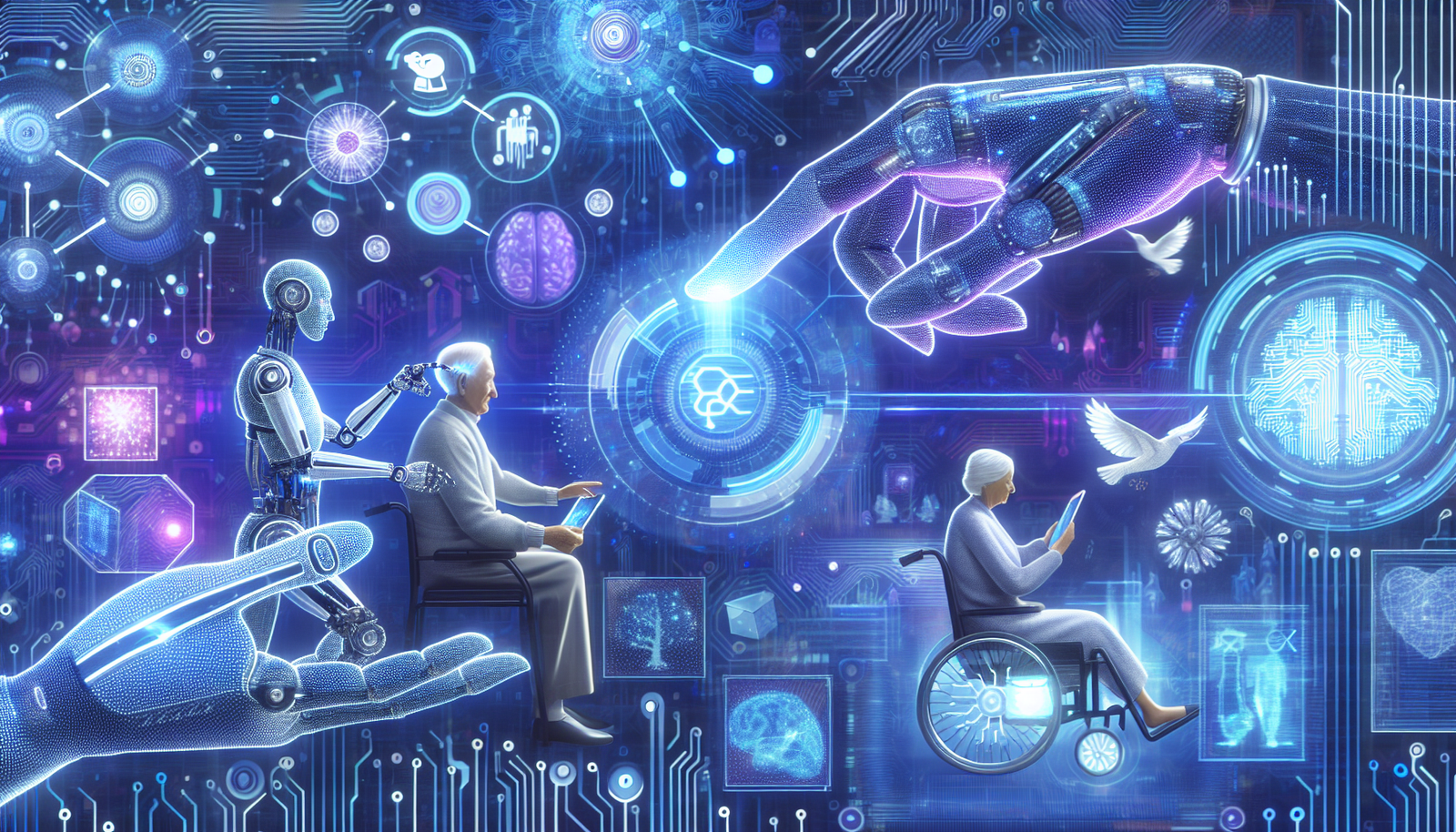The CNIL is committed to supporting technological innovation. Artificial intelligence is emerging as a key vector in the silver economy, redefining service strategies for aging populations. This dynamic raises major ethical and regulatory issues, where equity of access and protection of personal data play a predominant role. In the face of a society undergoing profound change, fostering dialogue between economic actors and regulators is essential to ensure a calm future.
CNIL and its commitment to the Silver Economy
The National Commission for Informatics and Liberties (CNIL) is taking significant measures to promote the development of artificial intelligence (AI) in the Silver Economy. This initiative aims to improve the quality of life for elderly individuals through advanced technologies. By facilitating the use of AI, the CNIL seeks to guarantee respect for privacy while fostering innovation in this expanding sector.
The challenges of artificial intelligence in the Silver Economy
The integration of artificial intelligence into services aimed at seniors is of major importance. AI technologies can drive solutions such as virtual assistants to help elderly people in their daily lives. With intelligent solutions, it becomes possible to optimize care management, improve communication among the various sector stakeholders, and ensure personalized patient follow-up.
Collaboration with sector actors
The CNIL encourages partnerships between technology companies and health organizations. This collaboration aims to create applications that align with regulatory requirements while being tailored to the needs of older users. Discussions continue to define frameworks aimed at protecting personal data while advancing these innovations.
Ensuring respect for privacy
Data protection is essential in the field of the Silver Economy. The CNIL asserts that the development of AI must be accompanied by robust guarantees regarding individual data confidentiality. Every project must incorporate ethical principles to ensure responsible use of artificial intelligence. The goal is to establish a balance between technological innovation and respect for fundamental rights.
Potential impacts on the daily lives of seniors
Innovations in AI could lead to necessary transformations in the life trajectory of elderly individuals. Technologies such as connected health devices will enhance autonomy and offer on-demand services. With these advances, home care could become safer while addressing the specific needs of seniors.
Examples of concrete applications
Innovative projects are emerging, integrating AI to provide support in daily life. Applications focusing on fall detection or medication management are under development. These systems, utilizing artificial intelligence, can alert relatives or healthcare professionals in real time. The results obtained so far are promising and point towards a growing adoption of technologies by seniors.
Future perspectives
The transition to a Silver Economy incorporating artificial intelligence appears to be robust. The initiatives of the CNIL will serve as a lever to direct investments towards ethical and effective solutions. Discussions are ongoing to establish standards and recommendations. Health sector actors must stay informed of regulatory developments to anticipate future challenges in this dynamic field.
Frequently Asked Questions
What is the silver economy?
The silver economy refers to the entirety of goods, services, and innovations aimed at addressing the needs of elderly individuals, thereby improving their quality of life and autonomy.
How does the CNIL support the development of artificial intelligence in the silver economy?
The CNIL encourages the development of artificial intelligence by issuing recommendations and establishing legislative frameworks that ensure the protection of personal data while allowing innovation in the sector.
What are the risks associated with the use of artificial intelligence in the silver economy?
Risks include privacy violations, algorithmic bias, and the security of personal data of users, necessitating strict regulation by the CNIL.
What types of artificial intelligence technologies are used in the silver economy?
Artificial intelligence technologies used include virtual assistants, telemedicine, companion robots, and surveillance systems to ensure the safety of elderly individuals.
How does the CNIL ensure that artificial intelligence is ethical in the silver economy?
The CNIL develops guidelines stating that any development in artificial intelligence must respect ethical principles, including transparency, non-discrimination, and informed consent from users.
What types of partnerships does the CNIL establish with actors in the silver economy?
The CNIL establishes partnerships with companies, researchers, and institutional actors to co-construct solutions that integrate ethical considerations and data protection from the design stage.
How can one report an issue related to the use of artificial intelligence in the silver economy?
Users can report any issues to the CNIL via online forms, specifying the details of the situation and providing evidence if necessary for an effective investigation.






